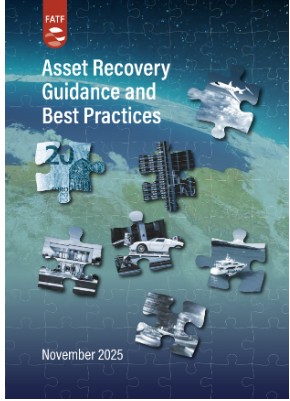The FATF has published on 04 November 2025, published a comprehensive Asset Recovery Guidance and Best Practice that aim to intensify global efforts to recover criminal assets.
Based on Interpol and UNODC analysis, a very low percentage of criminal assets are confiscated. FATF’s assessments demonstrated that more than 80 % of jurisdictions are operating at low or moderate levels of effectiveness in asset recovery. In response, this new guidance published by the FATF, will help countries implement major revisions to FATF’s Recommendations in 2023 that provide a more robust toolkit to recover illicit proceeds and partner in the global fight against money laundering and other serious crimes.
The guidance consists of eight chapters targeted at different audiences including policymakers, law enforcement, prosecutorial and judicial authorities, justice or foreign affairs ministries, and asset managers. Trainers, technical assistance providers, the private sector, and civil society can all use the guidance to contribute to asset recovery efforts. Public authorities and private stakeholders’ engagement play a vital role for a strong and effective asset recovery framework. Detection of criminal asset flows and identification of assets relies on information such as suspicious transaction reports gathered from financial institutions, Virtual Asset Service Providers, designated non-financial businesses and professions.
The FATF encourages jurisdictions to make asset recovery a policy and operational priority and is calling on them to use the new guidance to safeguard the integrity of the global financial system and improve outcomes for victims and communities.
The guidance can be accessed here

